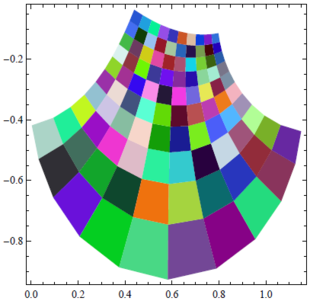12-240/Classnotes for Tuesday October 09: Difference between revisions
From Drorbn
Jump to navigationJump to search
| Line 16: | Line 16: | ||
(<=) need to show that β = span(V) and β is linearly independent. |
(<=) need to show that β = span(V) and β is linearly independent. |
||
The fact that β span is the fact that every element of V can be written as a linear combination of elements of β, which is given |
|||
Assume <math>\sum \!\,</math> ai.ui = 0 ai <math>\in\!\,</math> F, ui <math>\in\!\,</math> β |
|||
<math>\sum \!\,</math> ai.ui = 0 = <math>\sum \!\,</math> 0.ui |
|||
since 0 can be written as a linear combination of elements of β in a unique way, ai=0 <math>\all\!\,</math> i |
|||
== Lecture notes scanned by [[User:Oguzhancan|Oguzhancan]] == |
== Lecture notes scanned by [[User:Oguzhancan|Oguzhancan]] == |
||
Revision as of 15:56, 12 October 2012
| |||||||||||||||||||||||||||||||||||||||||||||||||||||||||
In this lecture, the professor concentrate on basics and related theorems.
Definition of basic
β V is a basic if
1/ It generates ( span) V, span β = V
2/ It is linearly independent
theorems
1/ β is a basic of V iff every element of V can be written as a linear combination of elements of β in a unique way.
proof: ( in the case β is finite)
β = {u1, u2, ..., un}
(<=) need to show that β = span(V) and β is linearly independent.
The fact that β span is the fact that every element of V can be written as a linear combination of elements of β, which is given
Assume ai.ui = 0 ai F, ui β
ai.ui = 0 = 0.ui
since 0 can be written as a linear combination of elements of β in a unique way, ai=0 Failed to parse (unknown function "\all"): {\displaystyle \all\!\,} i











